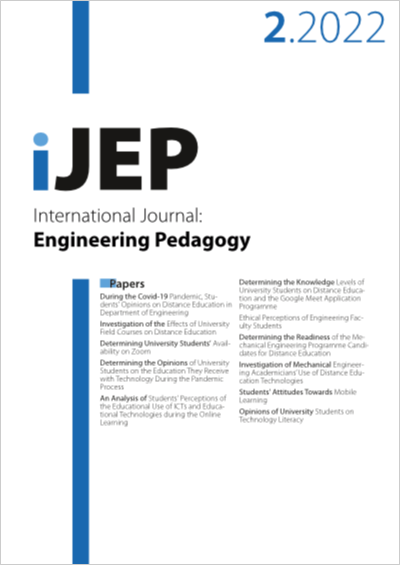Students' Attitudes Towards Mobile Learning
DOI:
https://doi.org/10.3991/ijep.v12i2.29325Keywords:
Mobile learning, mobile learning applications, student opinionsAbstract
The aim of this research is to reveal the attitudes of engineering faculty students towards mobile learning. The study group of the research consisted of 80 students studying at various universities in Kazakhstan and voluntarily agreeing to participate in the research. The research was created in a qualitative design. In this study, a semi-structured interview form developed by the researchers was used in order not to determine the mobile learning attitudes of the students. Students' attitudes towards mobile learning were evaluated based on the content analysis method. The result of the research reveals that the vast majority of students use mobile learning applications frequently. When students were asked about the advantages of mobile learning applications, they stated that it increases motivation, facilitates learning and is useful. The disadvantages of mobile learning were categorized by students as information pollution, need for mobile support and high cost. In order to eliminate the disadvantages of mobile learning applications; Uninterrupted internet and wireless data transportation support can be provided to meet the mobile support needs in universities.
Downloads
Published
How to Cite
Issue
Section
License
Copyright (c) 2022 Galiya Rysbayeva, Akmaral Berdaliyeva, Aliya Kuralbayeva, Nurila Baiseitova , Aigul Uspabayeva , Elmira Zhapparbergenova , Gulzhamila Poshayeva

This work is licensed under a Creative Commons Attribution 4.0 International License.



